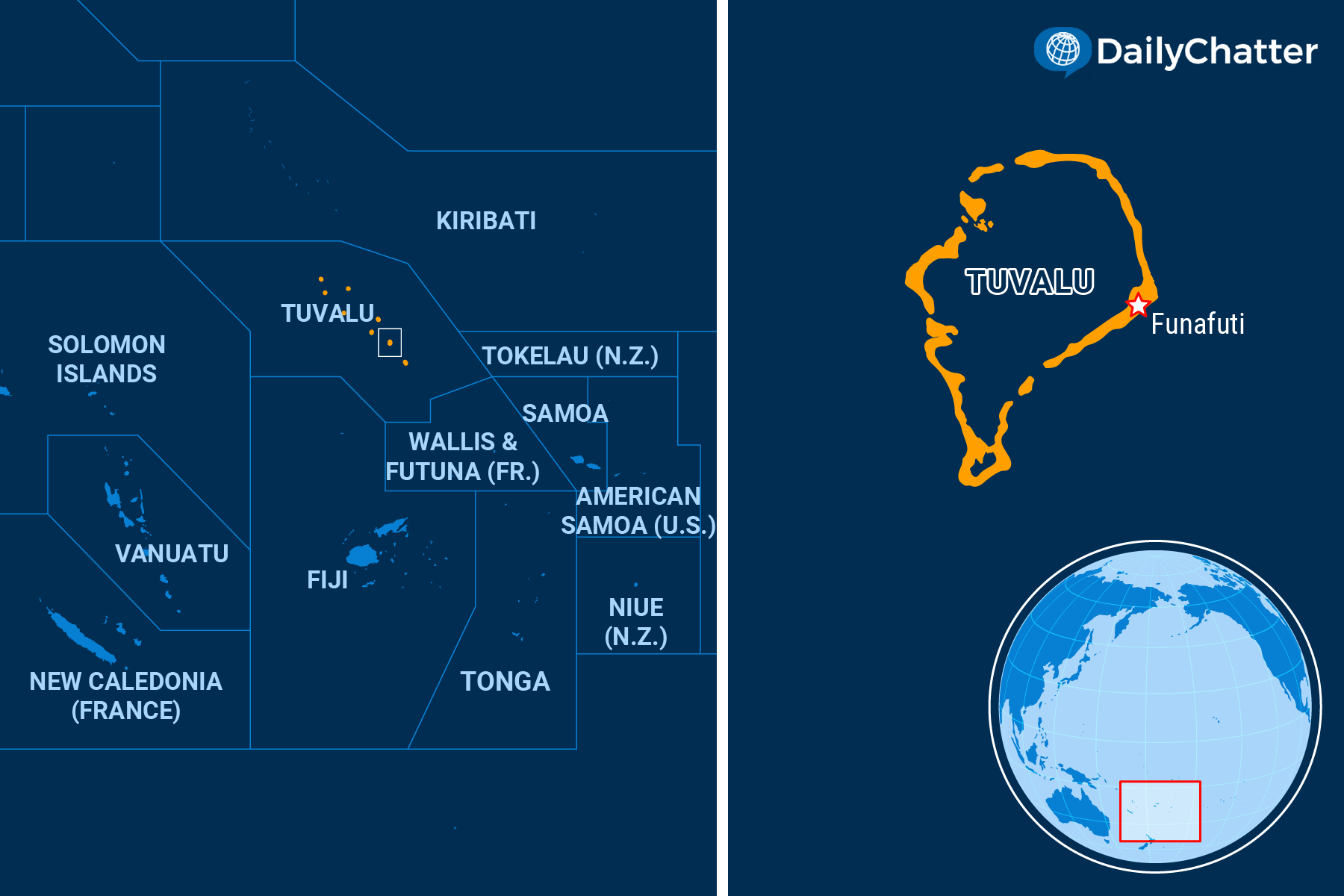The World Briefly
February 02, 2024The Long Goodbye
Tuvalu

|
Listen to Today's Edition
|
Tuvalu’s pro-Taiwan leader lost his seat in last week’s parliamentary election, which was closely monitored by Taiwan, China, and the United States as it raises questions over the foreign policy of one of Taipei’s last Pacific allies, Reuters reported.
A dozen nations recognize Taiwan instead of the People’s Republic of China, which claims Taiwan as its own. Tuvalu has held this position since 1979 and is now one of three remaining Pacific states to do so after Nauru severed its diplomatic ties in January with Taipei in favor of Beijing, which had offered more aid.
Tuvalu’s Prime Minister Kausea Natano pledged not to shift alliances, while his opponent Seve Paeniu called for the archipelago to review its partnership in consideration of national interests.
Last week, Tuvaluans voted in eight two-member constituencies to renew their 16-member parliament. Natano, running in the capital Funafuti, was not re-elected.
Taipei, commenting on the election results, noted that most of the elected lawmakers “support the maintenance of the friendship between the two countries.”
Still, the election results raised questions over the future of the Pacific nation’s foreign policy, amid a race for influence in the region between Beijing on the one hand, and Washington and its allies on the other hand.
While the US recently advertised plans to connect Tuvalu to global communications via a submarine cable, Australia last year concluded a deal with Natano’s government. The so-called Falepili Union treaty will grant Tuvaluans leaving their climate-threatened archipelago refugee status in Australia, in exchange for discretion over Funafuti’s diplomacy – essentially allowing Canberra to veto a potential recognition of China over Taiwan.
The two remaining contenders for the top job, Paeniu and Enele Sopoaga, disagree on the fate of the treaty. The former pledged to preserve it, but the latter said he wanted to cancel the deal, arguing that it violated the country’s sovereignty. Even so, Paeniu told the Washington Post he was open to recognizing China.
Meanwhile, Paeniu is also vying for the position of prime minister through a coalition with other lawmakers. Tuvalu has no political parties, and all 16 members of parliament, running as independents, are divided into two groups, either supporting or opposing the leader.
Lawmakers from across the archipelago have yet to convene and appoint a new prime minister. Some of them, coming from remote islands, will embark on a 27-hour boat journey.
Not already a subscriber?
If you would like to receive DailyChatter directly to your inbox each morning, subscribe below with a free two-week trial.
Support journalism that’s independent, non-partisan, and fair.
If you are a student or faculty with a valid school email, you can sign up for a FREE student subscription or faculty subscription.
Questions? Write to us at hello@dailychatter.com.

